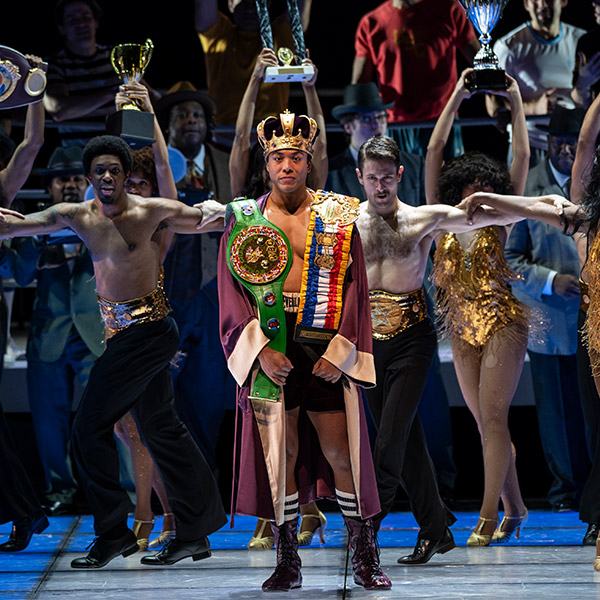February 06, 2024
A potent blend
Champion’s mix of styles helps advance its powerful story
Terence Blanchard's highly acclaimed debut opera, Champion, has made its premiere at Lyric Opera of Chicago. Described in the composer’s subtitle as an “Opera in Jazz,” the work goes beyond the confines of conventional operatic performance, featuring mesmerizing jazz styles seamlessly blended with allusions to traditional opera. The story takes the audience through a captivating journey of different eras in the life of Emile Griffith, from his incredible boxing career to his struggles with his sexuality. Champion masterfully weaves together the emotional turmoil of Griffith's life from childhood through adulthood, inviting the audience to explore a rich tapestry of human emotion, identity, and the enduring spirit of resilience.
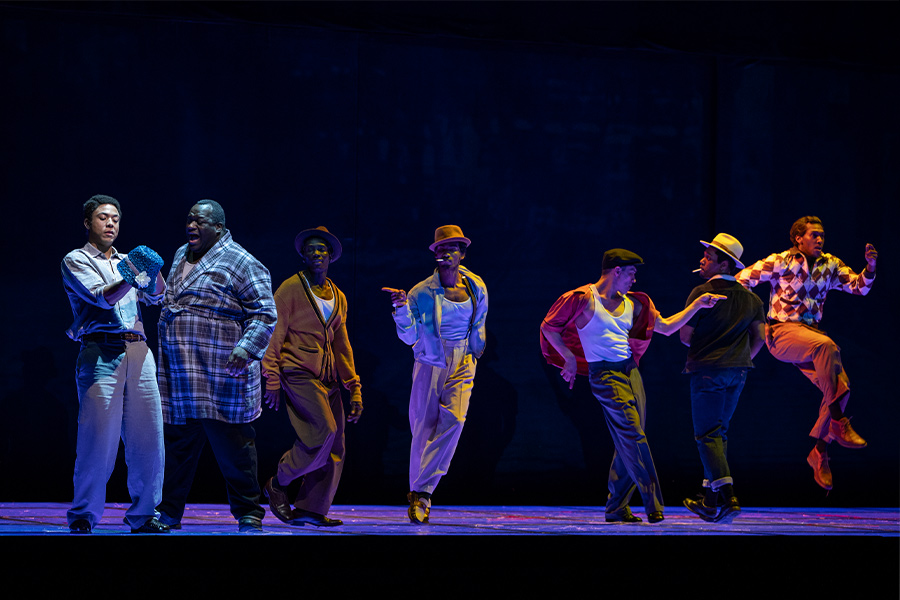
Emile Griffith (Justin Austin/Reginald Smith, Jr.) has dreams of being a hat maker and baseball player when he first arrives in New York City.
Griffith, hailing from the picturesque island of St. Thomas, emerged as a formidable force in the world of professional boxing during the mid-20th century. Born on February 3, 1938, Griffith's journey from the Caribbean to New York City marked a pivotal chapter in his life, as he transitioned from tranquil surroundings to a dynamic urban city.
During the mid-20th century, New York City served as a prominent hub not only for the sport of boxing but also as a flourishing epicenter of jazz culture. Both St. Thomas and New York City have consistently functioned as cultural melting pots, characterized by a merging of diverse influences including African, European, and Caribbean musical traditions. The Detroit Opera eloquently articulated the impact of jazz in Champion, stating, "Blanchard seamlessly incorporates vernacular passages constructed from swing and Latin rhythms into an orchestral tapestry, replete with expansive string textures and soaring arias, evoking a brooding lyricism."
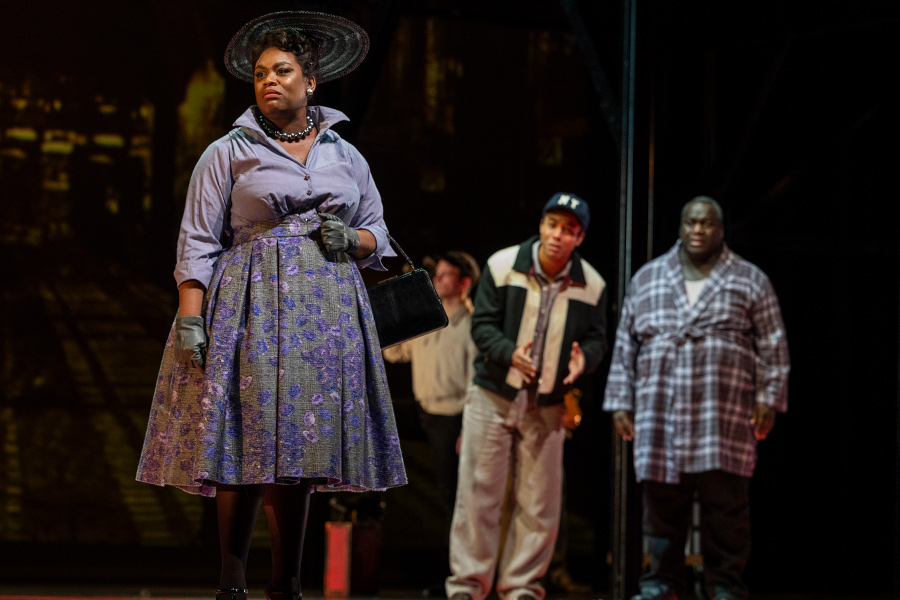
Emelda Griffith (Ryan Opera Center alumna Whitney Morrison) is surprised to find her son, Emile (Justin Austin/Reginald Smith, Jr.) in New York City.
The opera delves into Griffith’s complex life by navigating the themes of childhood neglect, sexuality, mental health, and the challenges of being a black boxer in America. The score aptly captures the shifting realities and unsteady tectonics of dementia by incorporating syncopated rhythms and elements of improvisation that create rich tension. In an interview with the San Francisco Jazz Center, Blanchard hinted at the origins of his stylistic choices. “There's so many similarities between jazz and boxing,” he said. “There's only six punches in boxing. It's how you use it and how you improvise, how you adjust in a situation; it’s the same thing playing on a stand with jazz musicians.” But Blanchard wants audiences to avoid the descriptor “Jazz Opera.” “I didn’t want it to be known as a ‘jazz opera,’” he said. “That's why we called it an ‘opera in jazz.’ It’s not like you have the Basie band swinging from beginning to end. But the elements of harmonic progression, phrasing, rhythm, and all of those things are part of the tools that I used to tell the story.” In various segments of Champion, exemplified by "Seventeen Blows," the musical score encompasses a dynamic, victorious, and intricate composition style that emulates the traditional, fluid elements found in jazz.
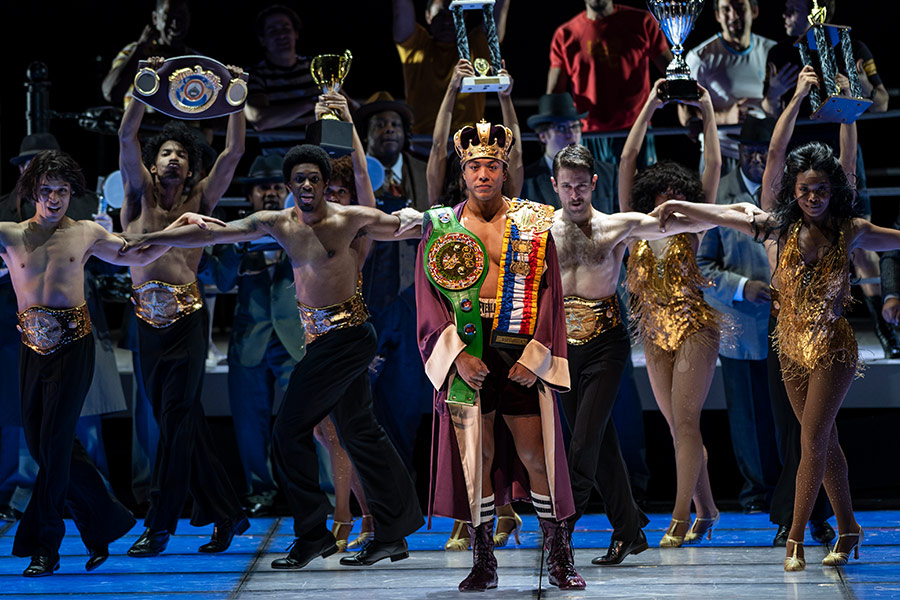
Justin Austin appears as Emile Griffith at the pinnacle of his career.
“Terence’s background is in trumpet and piano compositions for film scores, so in this composition, you get exactly what you would see in a film,” says Michael Black, Chorus Director and Head of Music for Lyric. “You get the strings swirling out of nowhere in a short scene. The musical impact has to be immediate, and the colors for each scene have to be so different.”
The predominant effect, however, retains the characteristics of an opera ensemble. The score incorporates classical jazz instruments such as cymbals, trumpets, and strings, enabling the infusion of embellishments like trills and jazz scales, and throughout the composition features many traditional jazz symbols such as: swing notations, fermatas, blue notes, and glissandos. Within the orchestra, a jazz trio consisting of piano, double bass, and drums adds a distinctive layer to the musical arrangement, enhancing the overall complexity of the performance. “The score contains so much percussion foundation,” Black adds. “After that the brass joins in, which creates an element of New Orleans style, then you have the jazz combo joining in which causes all of these elements to overlap.” (In fact, the orchestra features 13 different kinds of percussion).
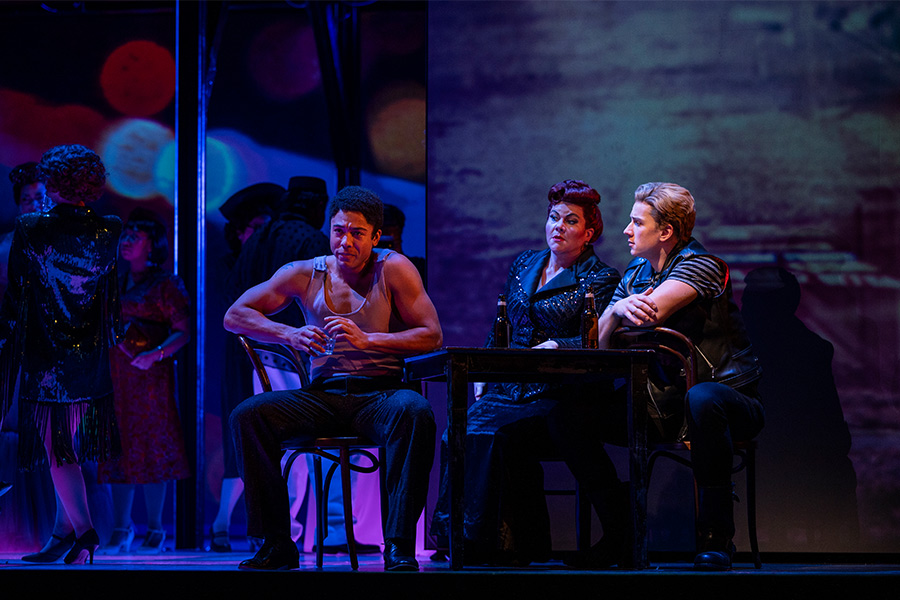
Emile Griffith (Justin Austin) sits with bar owner Kathy Hagen (Meredith Arwady) and a bar patron (Ian Rucker) in Hagen's Hole.
Champion stands as a captivating fusion of classical opera and vibrant improvisation, and the music itself illuminates conflicting ideas of stardom and reality. The work celebrates the enduring legacy of one of the world’s greatest boxers and his journey towards self-acceptance and freedom. As audiences experience the dynamic shifts, cultural echoes, and cinematic nuances within the production, they will not only be entertained but inspired.

